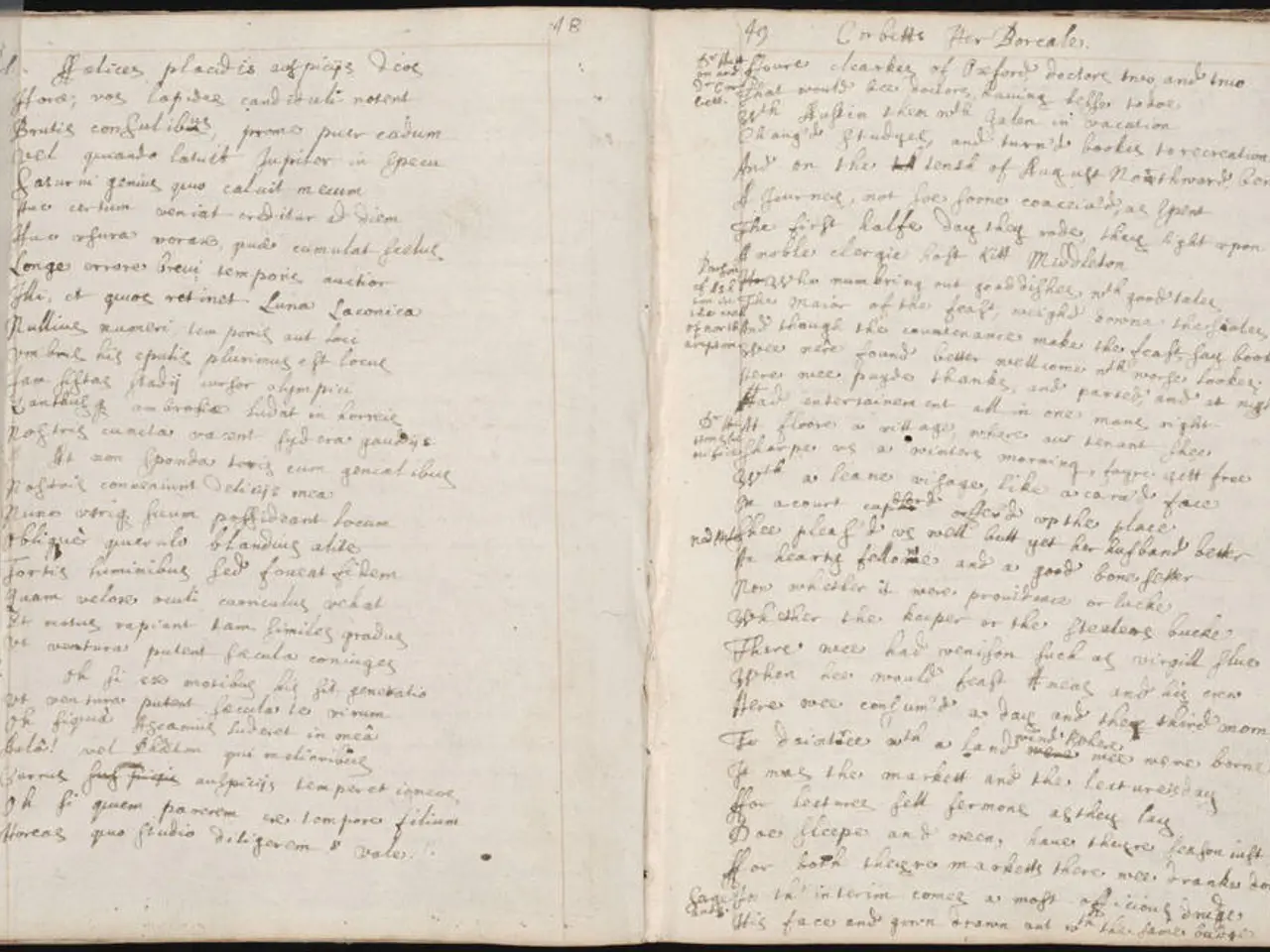Pondering Over The Topic During Composition
In a captivating new book titled "The Unicornologist," author ARHuelsenbeck delves into the supernatural, but the story's ulterior motive is far from mystical. The author aims to encourage readers to be open to the unknown, using the power of narrative to provoke thought and introspection.
The significance of a theme in a narrative cannot be overstated. It provides intellectual and emotional depth, guiding the development of characters, plot, and conflicts. A theme orients the narrative around a central preoccupation or question that resonates universally, helping the story avoid feeling directionless despite elegant prose or complex arcs.
Themes develop through variation, tension, and conflict rather than mere repetition. They emerge as the narrative explores contradictions and navigates essential questions, embedded in the story’s elements such as tone, character actions, and plot. This organic interpretation allows the audience to delve into the meaning of the story without being overtly told.
Writers can identify and develop their themes effectively by closely analyzing their story’s key components: plot, characters, setting, and tone. Character development, especially how characters change or face challenges, often mirrors and illuminates the theme. Writers should frame the theme as a question rather than a didactic statement to avoid preachiness and create depth that invites exploration.
Practical steps to develop theme include clarifying the story’s core question or message, using the theme as a "touchstone" to decide what to include, emphasize, or omit in the narrative, ensuring the theme is integral and recurring conceptually, allowing smaller sub-themes to echo the main theme harmoniously, and writing to explore personal insights and fears, which can reveal authentic thematic concerns.
ARHuelsenbeck, a prolific author and artist, blogs about the arts and the creative process at ARHtistic License. Her themes are often covert but underlie the entire story, as seen in her upcoming mystery and Middle-Grade drafts. Before starting rewrites, she emphasizes the importance of analyzing and identifying the story’s message and tailoring the rewrites so the theme is always just below the surface.
Her artwork, photography, and quilts can be found on Instagram, and she can be followed on Twitter. Currently, ARHuelsenbeck is writing a Young Adult mystical fantasy and a Bible study guide, and submitting a poetry chapbook. A former elementary general music teacher, her stories are rooted in universal truths about the human condition.
For instance, the theme of Angie Thomas' book "The Hate U Give" is to give others a clue of what it's like to be an African-American person in America. Simplicity is not always necessary for defining theme, as some writers and teachers suggest that the theme drives the entire story and is what the main character needs and the story relates the journey to achieve. The theme may be as general as love, death, or taxes, or as specific as think before you speak or be prepared to deal with the consequences of your words.
In essence, the importance of theme lies in its ability to provide direction and lasting resonance to a story, while effective theme identification and development come from reflective, critical engagement with the story’s elements and a focus on universal human experiences.
- The first draft of ARHuelsenbeck's book, "The Unicornologist," may delve into the supernatural, but the thematic core, designed to encourage readers to embrace the unknown, serves as a guiding force throughout the creative process of fiction writing, shaping characters, plot, and conflicts.
- As ARHuelsenbeck works on her Young Adult mystical fantasy and Bible study guide, the theme she aims to express, such as universal truths about the human condition, is crucial in providing intellectual and emotional depth to the books, ensuring they resonate with readers as an integral part of the entertainment they consume.







